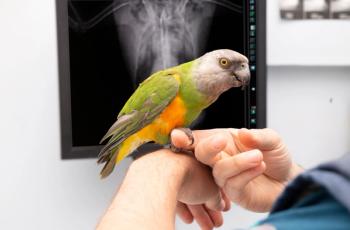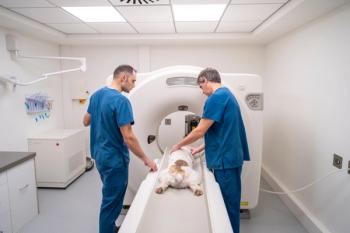
Recognize symptoms of compassion fatigue
It's in every corner of your hospital, and you try to avoid it as much as possible. It's in your exam rooms, your treatment area, your surgery suite and even your employee lounge.
It's in every corner of your hospital, and you try to avoid it as much as possible. It's in your exam rooms, your treatment area, your surgery suite and even your employee lounge.
Veterinarians experience death five times more frequently than physicians. The result can take its toll.
You feel it creeping up on you and your mind implores you to run for cover. It robs you of energy, your passion and humor. It's an unwanted guest in scores of veterinary hospitals and doesn't care about over-staying its welcome. I'm referring to compassion fatigue — a syndrome that is getting increasingly more attention in veterinary medicine. 1, 2
Compassion fatigue or the emotional cost of caring is not a new phenomenon, but veterinary professionals are looking at it more seriously as a real threat to their professional and personal lives. Defined as a deep physical, emotional and spiritual exhaustion; it causes acute emotional pain to those experiencing it. Compassion fatigue comes from the repeated exposure to death and supporting people with intense emotions for extended periods of time.3
Does this sound familiar to you? When was the last time you had a day at work when you didn't do this?
Euthanasia is typically children's first experience with death.
As a veterinarian, you enjoy the reputation of being one of the most caring and trustworthy professionals out there. However, there are risks associated with this level of caring. By giving yourself emotionally and empathizing with others regularly, you make yourself vulnerable. When sensing another's pain it's hard to not get overwhelmed by that pain. You begin to experience empathy overload and risk becoming a "wounded caregiver."3
If you are experiencing compassion fatigue, you will probably recognize some of its classic symptoms:
- Avoidance behaviors
- Thoughts of "I don't care" and sensations of "emotional numbness"
- Withdrawal from previously pleasurable activities
- Indifference to or withdrawal from relationships
- Intrusive thoughts and images about work-related traumas
- Sleeping and eating difficulties
- Episodes of high anxiety
- Physical ailments (i.e. chronic pain or gastrointestinal symptoms)
- Less tolerance for problems and others' stress
- Depersonalizing those who are in need of help
- Feeling unable to "recover" after a patient's death
- Feeling trapped by responsibilities and victimized by your job
- Feeling that personal life intrudes on work life
- Feeling enormously drained by even small changes
- Loss of meaning and feelings of excitement about work
- Feeling overwhelmed by the "residue" of emotional suffering
- Experiencing acute emotional pain (feeling neglected, misunderstood, sad, vulnerable and hopeless).
Compassion fatigue in veterinary medicine is a particularly tricky problem because the stressors contributing to it are inherent in your work. As a veterinarian, you experience death five times more frequently than your counterparts in human medicine.4 Factor in your own unique blend of responses to patient death and you're sitting on a possible powder keg. Particular emotional reactions to look out for that can increase compassion fatigue include:
- Guilt arising from patient death
- Powerlessness over disease; having no ability to cure but only care
- Emotional investment to a patient that dies
- Illness or death of very young patients
- Fear and guilt of letting down patients and clients
- Sadness when a patient does not have a "good death" (however defined)
- Difficulty establishing emotional boundaries.
Veterinarians say the experience can be the most emotionally charged.
When you add all these elements together, you may feel like a lamb to slaughter.
Your very profession requires you to face these difficult situations every day. So, based on what you've been reading...how are you doing? Has any of this felt just a bit too familiar? Is it time for you to deal with this before it ruins your love for your job or severely impacts your life? How can you support yourself and your staff?
Hang in there my friends and stay tuned for next issue when we will discuss practical ways to deal with compassion fatigue and help rid this unwanted intruder from your work and your life.
Ms. Durrance, MA, co-owns Mountain Shadows Pet Hospital in Colorado Springs, Colorado with her husband (a veterinarian). She is a veterinary grief counselor for World by the Tail's Web site
Newsletter
From exam room tips to practice management insights, get trusted veterinary news delivered straight to your inbox—subscribe to dvm360.




